Self Care
Self Care for Life
Making small changes can make a big difference. #TeamGNWMP are supporting this initiative to help you take care of your own health & well-being.
It is often quicker & easier, rather than waiting for an appointment at the surgery, for you to visit your Community Pharmacist for minor &/or self-limiting conditions, including acne, dandruff, fungal nail infections & the like. Pharmacists are highly training health professionals who are able to give advice, recommend the right treatments for these self-treatable conditions & can explain the normal duration of symptoms. They can also offer you to help stop smoking, manage your weight & many pharmacies have private consulting rooms.
NHS England recommend that medicines for minor ailments such as colds, hay fever & mild dry skin should no longer be routine prescribed. Please purchase these in future, with advice from a pharmacy if needed.
Self-care is recommended when you have a minor condition which does not normally need medical care (from a doctor or nurse) or any treatment in order to get better.
In practice this means a person decides that they can manage their illness without seeing a doctor.
This may be because they do not like taking remedies or pills, or because they believe they will recover just as quickly if they stay at home & rest until their illness goes away of its own accord. Or they may pop out to buy medicines over the counter at a pharmacy. Either way, ‘self-care’ is something millions of us do every day – for positive & practical reasons.
But what if you feel you need some advice before you are able to self-care? For instance, if you are not sure if your condition is minor, or one that goes away of its own accord, i.e. a virus, or if you just want advice on how to relieve the symptoms.
The good news is, your local pharmacist can help you.
Local pharmacies provide NHS services in the same way as GP practices – and pharmacists train for five years in the use of medicines before they qualify as health professionals. What’s more, it’s a walk-in service, open all day.
A pharmacist will assess symptoms and consider any long-term conditions, and the medicines that you’re taking, before providing a recommendation. They will either:
- Support/advise you in your decision to self-care.
- Sell you an ‘over the counter’ medicine (which does not need a prescription or visit to a GP) that will help relieve symptoms & make you more comfortable.
- Signpost you to the right medical care if you need it.
This help & advice is available at over 11,000 local pharmacies, without any appointment being needed, within your local area, & often into the evenings.
These are the common conditions that people can often manage for themselves:
- Coughs & colds
- Sprains & strains
- Sore throat
- Sinusitis
- Earache
- Constipation
- Headache
If you are unsure about which conditions you should be managing yourself, or how to manage them, see your local pharmacist.
Pharmacy First
Offering a more convenient way too access healthcare, this new service is expected to free up GP appointments for patients who need them most & will give people quicker & more convenient access to safe & high quality healthcare. It includes the supply of appropriate medicines for 7 common conditions including earache, sore throat, & urinary tract infections, aiming to address health issues before they get worse.
To find the closest pharmacy who is participating in this scheme, click here.
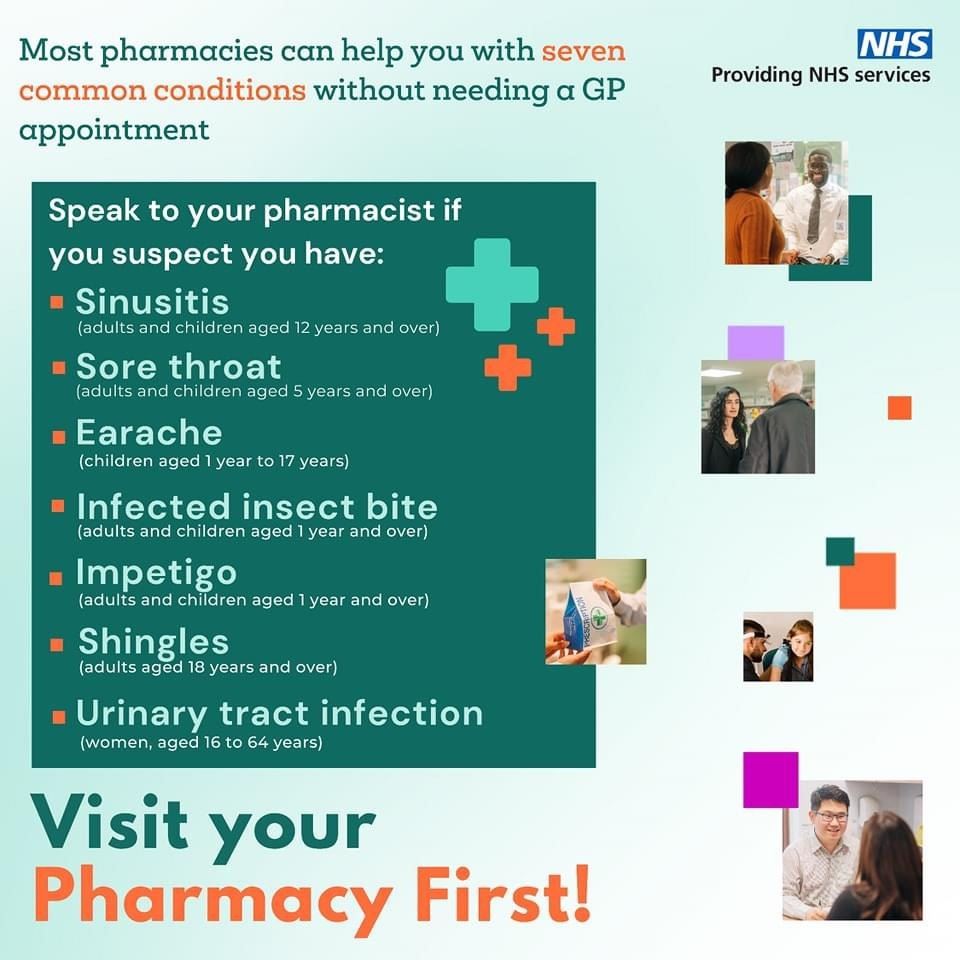
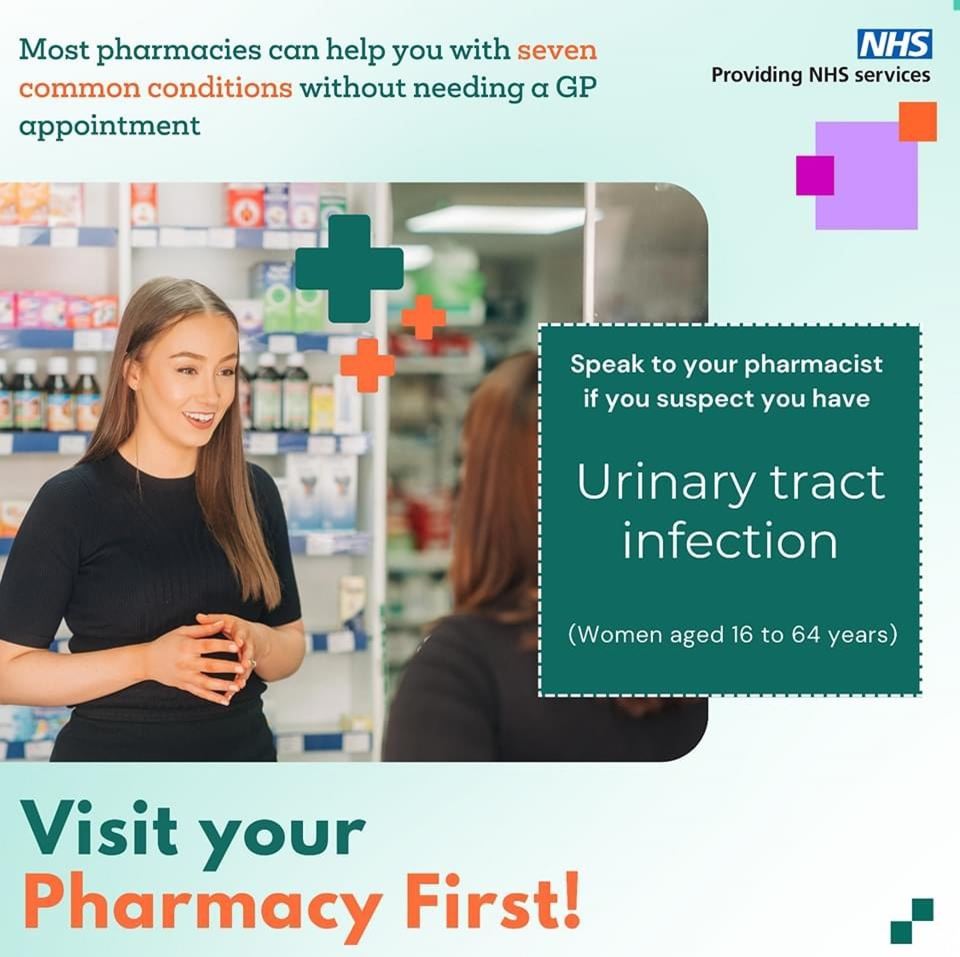
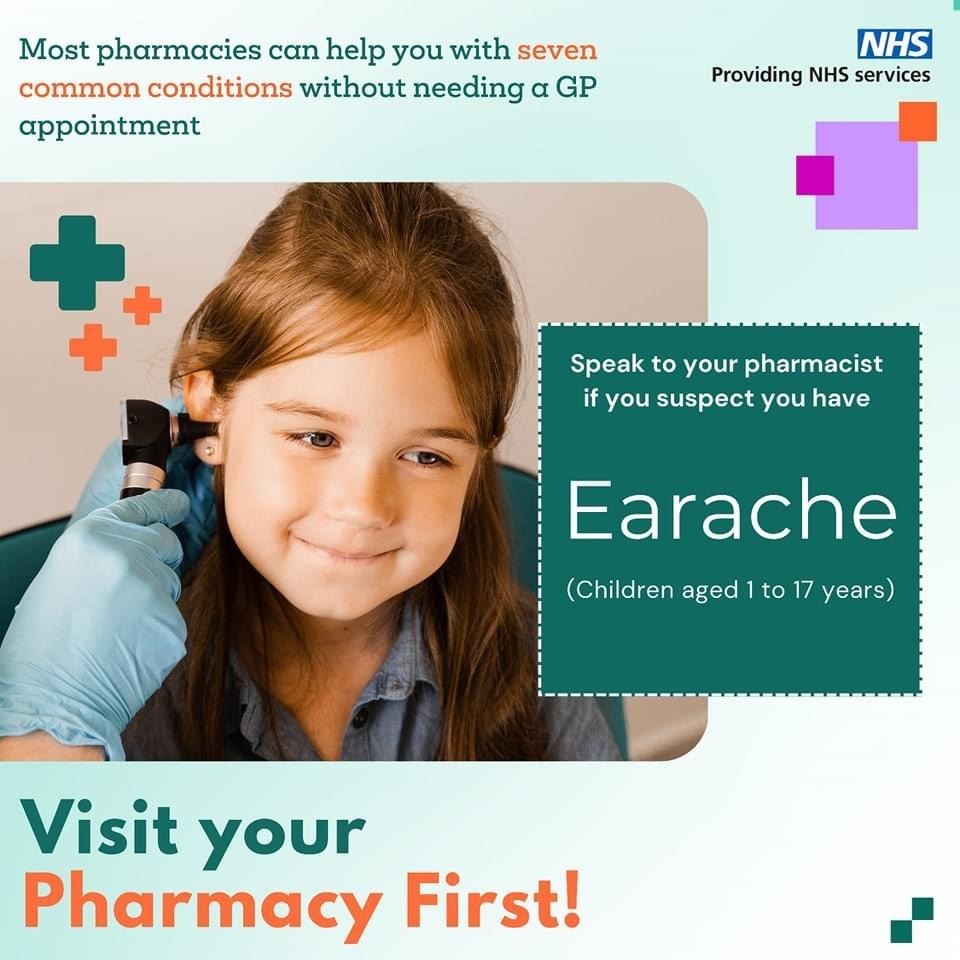
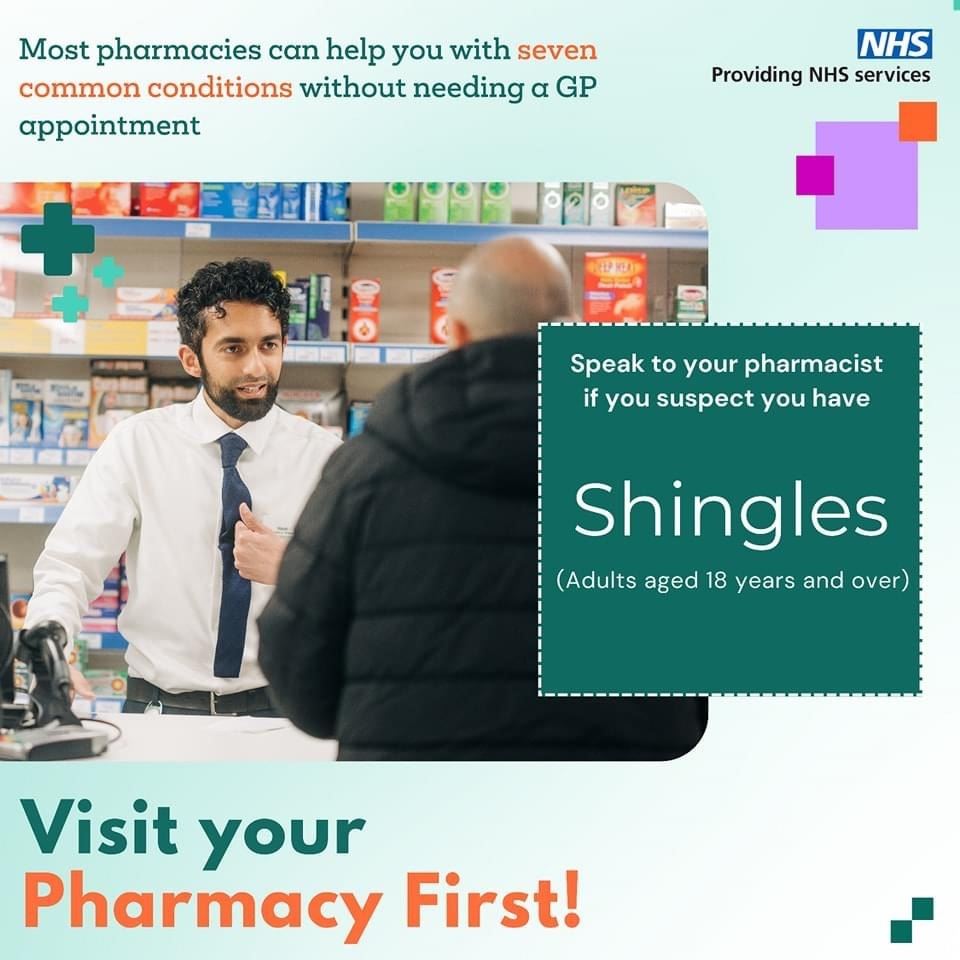
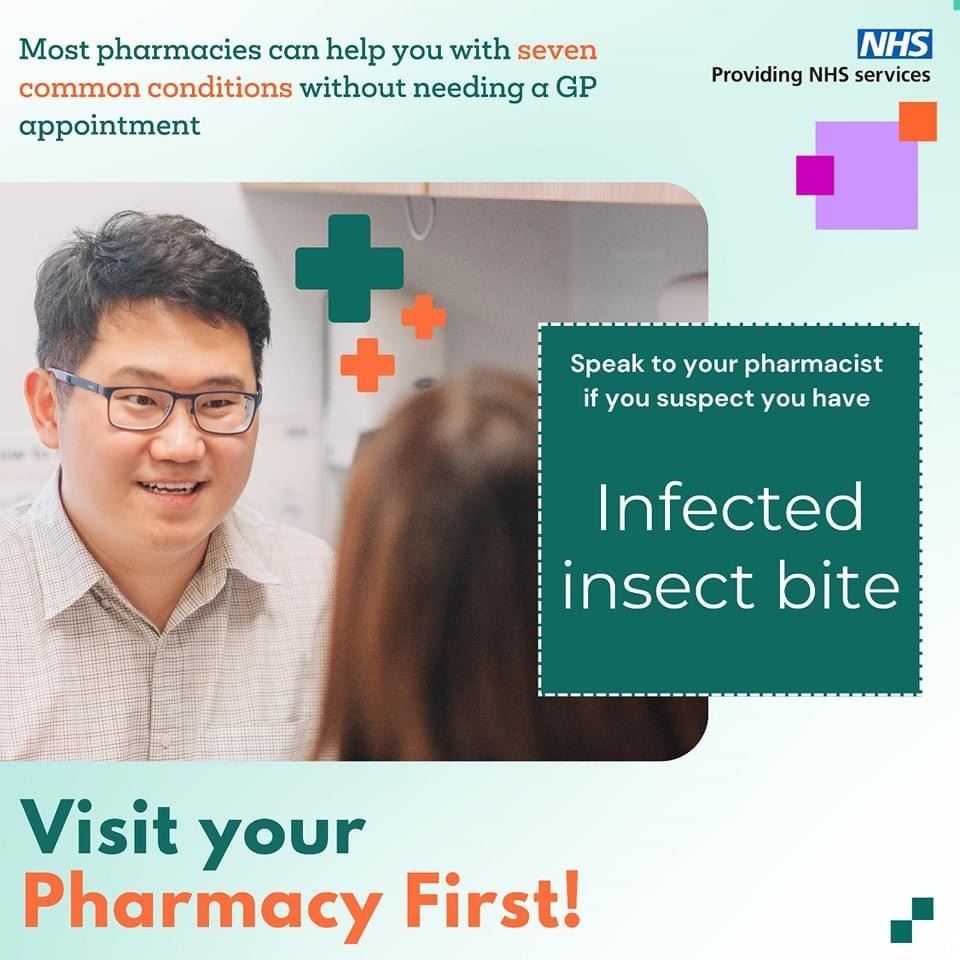
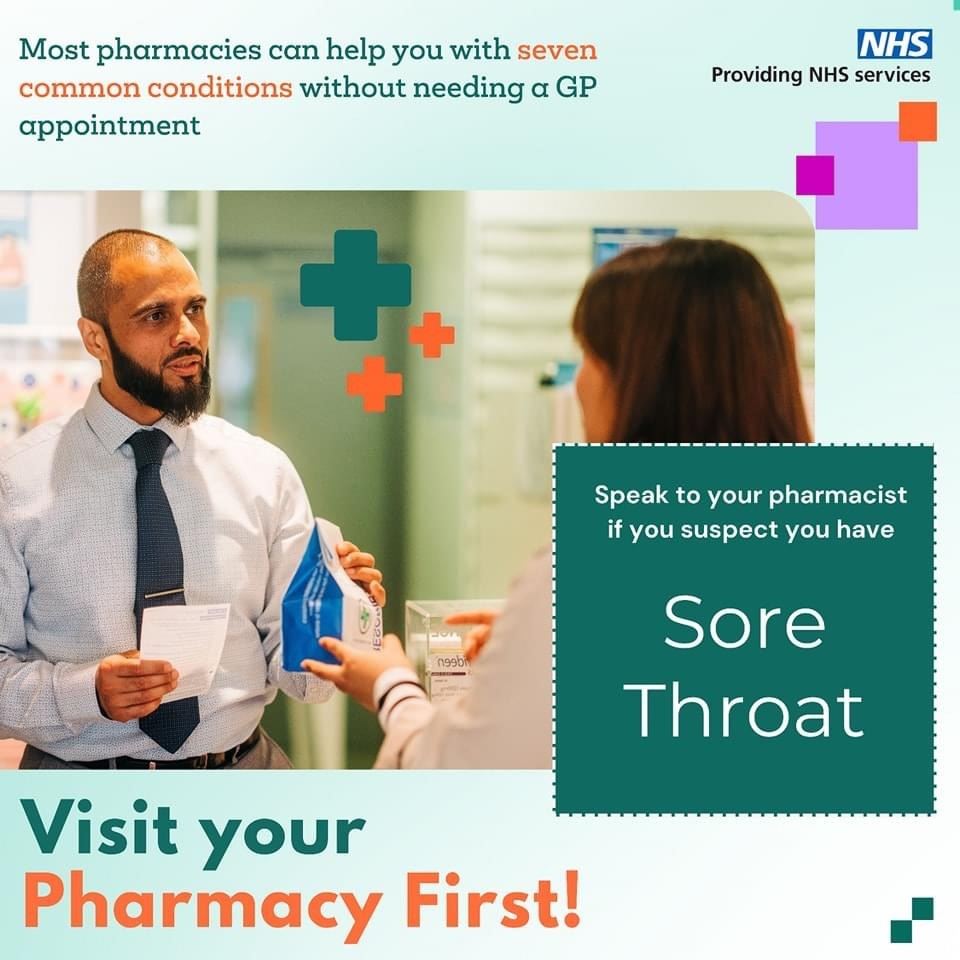
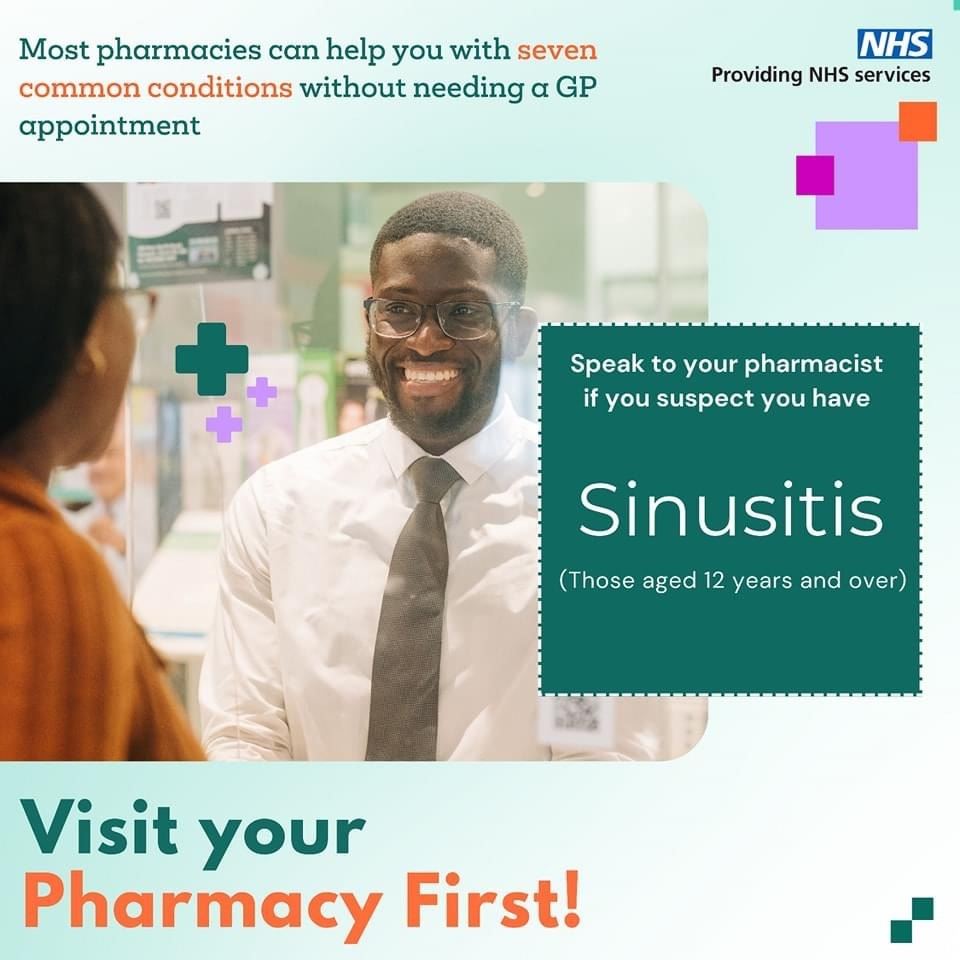
Over the counter medicines:
Why can't I get a prescription for an over the counter medicine? - NHS (www.nhs.uk)
You can buy over the counter medicines for any of these conditions:
- acute sore throat
- minor burns & scalds
- conjunctivitis
- mild cystitis
- coughs, colds & nasal congestion
- mild dry skin
- cradle cap
- mild irritant dermatitis
- dandruff
- mild to moderate hay fever
- diarrhoea (adults)
- dry eyes and sore tired eyes
- mouth ulcers
- earwax
- nappy rash
- excessive sweating
- infant colic
- sunburn
- infrequent cold sores of the lip
- sun protection
- infrequent constipation
- teething or mild toothache
- infrequent migraine
- threadworms
- insect bites & stings
- travel sickness
- mild acne
- warts and verrucas
- haemorrhoids (piles)
- oral thrush
- head lice
- prevention of tooth decay
- indigestion and heartburn
- ringworm or athlete's foot
- minor pain, discomfort & fever (such as aches & sprains, headache, period pain, & back pain)
Page created: 18 January 2024